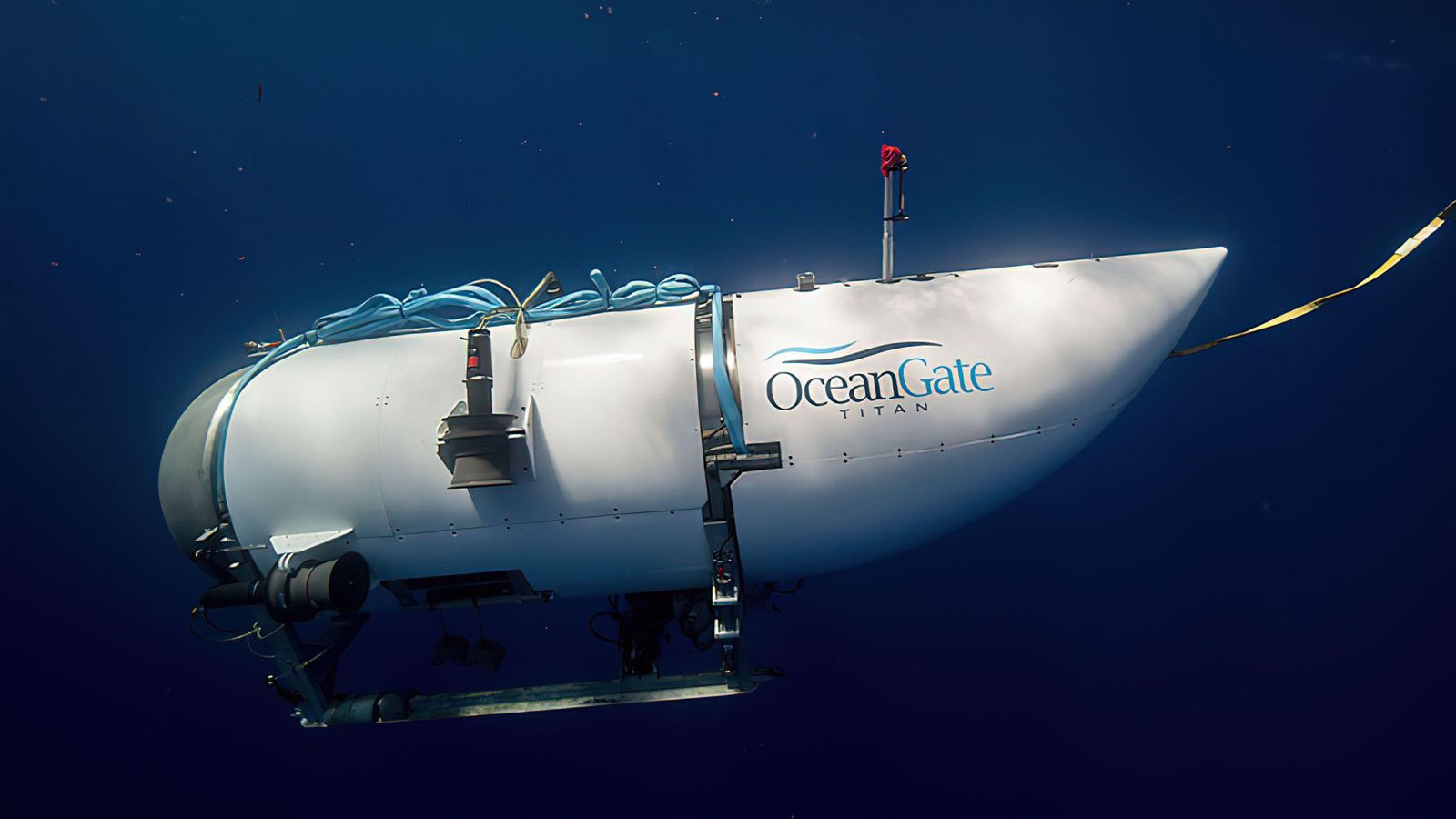The head of the search operation for the missing Titan submersible has said that it is still an active search and rescue mission.
Reports of underwater sounds in the area are still being investigated but it is believed much of it may be ocean background noise, Rear Admiral John Mauger told Sky News.
That is despite US Coast Guard estimates that the air supply in the vessel would run out at 12.08pm UK time on Thursday.
Mr Mauger told Sky News: “We continue to keep the crew members and families in our thoughts.”
Titanic sub search – live: Rescue robot reaches sea floor – as oxygen forecast to have run out
But he insisted this is “still an active search and rescue right now”, and added: “Conditions for the search and rescue are favourable right now.”
The vessel disappeared on Sunday in the Atlantic Ocean, some 435 miles south of Newfoundland, Canada, during an expedition dive to see the wreck of the Titanic.
Titanic sub search: Hunt for missing vessel turns critical as former passenger describes vessel’s ‘issues’
Titanic sub search: Fate of missing Titan submersible’s passengers may rest on one man
Missing submersible: Passenger who took 2021 trip to see Titanic says sub ‘was not safe’
Ships, planes and underwater craft from multiple countries have been deployed to the area with rescuers searching a remote part of the Atlantic Ocean more than twice the size of the US state of Connecticut in waters as deep as 4,020m (13,200ft).
“We have remote operated vehicles that are working along the path line where the planned dive had taken place for the Titan submersible.
“And we have the ability to both search and rescue,” Mr Mauger added.
He told Sky News that currently there are two ROVs (remote operated vehicles) that are capable of operating on the sea floor.
Both have cameras and sonar capability.
He added: “They have articulated arms that are capable of attaching equipment and attaching a rescue line.”
The desperate search for the submersible has included investigating underwater noises amid speculation it could be coming from the missing vessel.
Asked about the noises, Mr Mauger said that analysis of these by experts was ongoing.
“Their initial reports is a lot of the sounds that were generated were from background ocean noise, but they continue to prosecute that analysis and continue to look for all available information there.
“What’s important to me… is that we’ve continued to search in the areas where noise was detected with the ROVs that we had from the time of that detection.”
The vessel – operated by the US-based firm OceanGate – had five men on board when it went missing: British billionaire Hamish Harding, British businessman Shahzada Dawood, his son Suleman Dawood, OceanGate’s US-based chief executive and founder Stockton Rush and French submersible pilot Paul-Henri Nargeolet.







